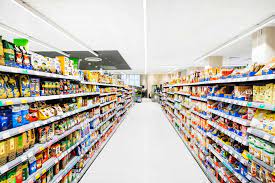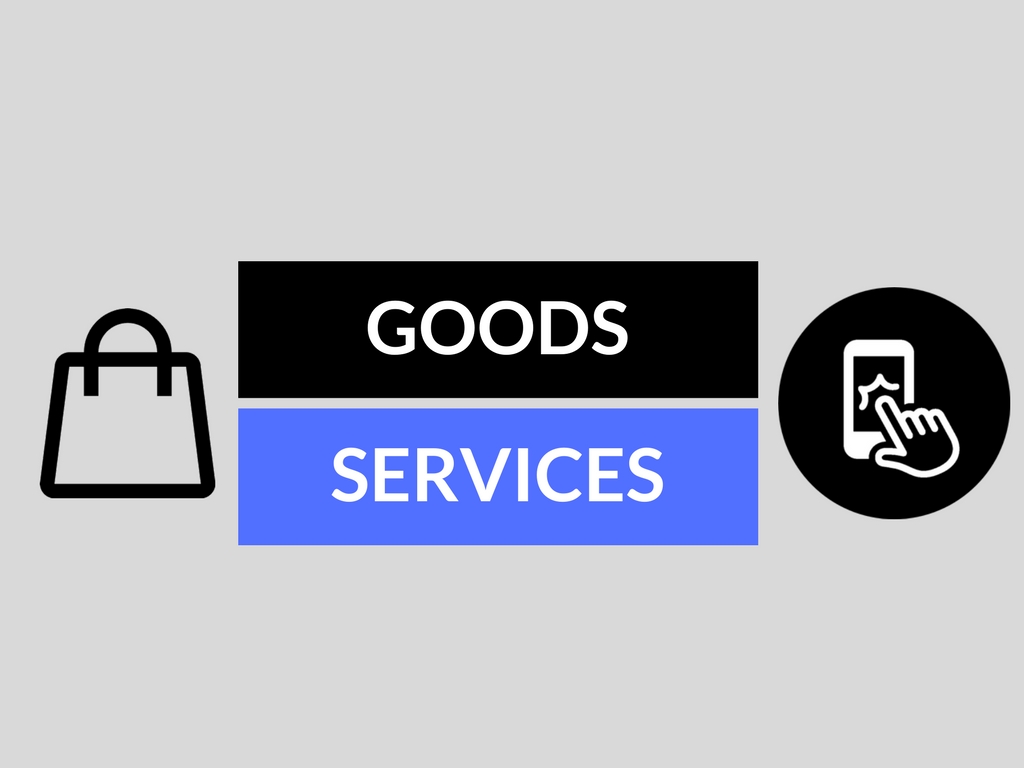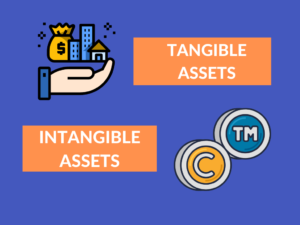Every one of us purchases many products for our personal and commercial purposes every day, some of them are tangible and some are intangible. Based on this tangibility, products are differentiated as Goods and Services. Goods are tangible in nature and Services are intangible and inseparable in nature. This article mainly aims at communicating the Difference Between Goods and Services.
GOODS
Goods are the things that can be offered to a market for attention, acquisition, use, or consumption that might satisfy a want or need of a customer. Goods are tangible in nature, they can be touched, smelled at, gripped, etc before purchasing.


Goods are again classified into two categories based on their durability. They are Durable goods, which last for many years like refrigerators, washing machines, etc, and Non-Durable goods which can only last for a small period like consumer goods soaps, shampoos, coffee powder, etc.
Goods have certain sizes, shapes, physical structures, etc. They are neatly packed, branded, labeled, etc and they are produced in advance by forecasting the future demand and can be stored as an inventory for sales.
SERVICES
Philip Kotler, defined “service as an activity or benefit, that one party can offer to another that is essentially intangible and does not result in the ownership of anything. The production of service, may or may not be tied to a physical product”.
Services are intangible in nature and they cannot be seen, touched, gripped, smelled at, tasted, etc. Services are perishable in nature and should be utilized at a very low time period. Services cannot be stored or produced in advance as we do for goods.
In services, there is no concept of transfer of ownership between seller and buyer. The quality of service cannot be measured. Examples of services are financial services like banking, insurance, etc., and Transportation services like train travel, bus travel, etc. hotel services, etc…
Types of Services
Let us take a look at the kinds of services that we come across in the economy. There are basically three types of classification of services.
1. Business Services
The first type of service is business services. The most basic definition would be services that support the daily functioning and activity of any business but is not a commodity. Take for example IT services. In this day and age, every business will require a technological setup. The people who provide IT support to a business are providing a service in exchange for consideration.
There are other similar services that any business enterprise may require for the smooth functioning and management of its activities. Some such services are Banking, warehousing, insurance, communication, transport, etc.
2. Personal Services
Personal services are commercial activities that are provided to individuals according to their individualistic needs. The service here is extremely personalized to the customer. So there can be no uniformity in the services. The service provider will alter his service according to the personal needs of each customer.
Some examples of personal services are catering, hotel and accommodation, medicine, any kind of artistic endeavor (like painting, sculpting, etc). As you will notice all these services fulfill the personal needs of the customers.
3. Social Services
And when talking about types of services, we come to social services. These are essential public services. They are provided by the government or other such non-profit organizations. These services aim to achieve social equality in society by providing the backward sections with the help they need. The service is not provided for a profit motive but as a social cause. Social services include services in the sector of education, sanitation, medical facilities, housing, etc.
Difference Between Goods and Services
| GOODS | SERVICES |
|---|---|
| Goods are produced. | Services are performed. |
| NATURE | |
| Goods are tangible and homogeneous in nature. | Services are intangible and heterogeneous in nature. |
| ESSENCE | |
| Goods are physical things and involves production. | Services are more like a process. |
| CORE VALUE | |
| Core value of a good is produced in a firm or factory or manufacturing unit. | Core value of a service is produced at the time of buyer and seller interaction. |
| PARTICIPATION | |
| Customers don't participate in production process of goods. | Customers participate in the production process of services. |
| INVENTORY | |
| Goods can be kept in stock for future sales, inventory of goods is possible. | Services cannot be kept in stock, inventory of services is not possible. |
| OWNERSHIP | |
| Transfer of ownership of the title is possible in case of goods. | Transfer of ownership of the title is not possible in case of services. |
| CONSUMPTION | |
| In case of goods, production and distribution can be separated from consumption. | In case of services, production, distribution and consumption occur at a same point of time. |
| QUALITY | |
| The quality of a product can be measured and compared with other products. | The quality of a service cannot be measured. |
| RETURNS | |
| Goods purchased can be returned if not satisfied and can get refund. | Services bought cannot be returned but in some cases can get refund of money. |
CONCLUSION
Both Goods and Services are necessary for an economy to flourish in any country. In the 21st century, the service industry is growing rapidly and the manufacturing industry has seen a lot of innovation in manufacturing techniques and processes because of the technology. The service industry continues growing to dominate the manufacturing industry in both developing and developed countries.
Also, check about What is GST (GOODS AND SERVICES TAX).?




